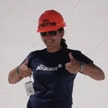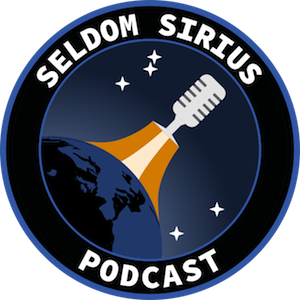 Jen won the Cobalt Zone back in June 2011. Here she tells us what she’s been able to with the £500 prize money.
Jen won the Cobalt Zone back in June 2011. Here she tells us what she’s been able to with the £500 prize money.
If you’re a scientist who’d like the funding to develop your own outreach activities apply for I’m a Scientist at imascientist.org.uk/scientist-apply
It’s been a while since I participated in I’m a Scientist and won my zone. I’ve got to admit that it took me longer than I was expecting to spend my money! This was for a couple of reasons. First of all by the time I received the money I was well into the final throes of my PhD in astrophysics, spending all my time finishing off my research and writing up my thesis. The second reason is that I went straight from the PhD into my current job as Outreach Officer for the Institute of Cosmology and Gravitation at the University of Portsmouth, supported by the South East Physics Network and The Ogden Trust. I’m now lucky enough to be paid to do science communication, and better still our department has a budget to spend on our outreach activities!

Listen to the Seldom Sirius podcast here. It’s out of this world, obvs.
One of the first things I did with my winnings was to buy an audio recorder. I was heavily involved with The Jodcast (Jodrell Bank’s astronomy podcast) while I was doing my PhD and wanted to be able to continue podcasting when I left.
My podcasting plans were put on the back-burner for a while but in 2016 I finally got round to starting a new podcast – Seldom Sirius. Seldom Sirius is a seldom serious podcast about astronomy where a group of us get together via Skype on a semi-regular basis and have a chat about space-related topics. It’s a bit like if we recorded the conversations we have in the pub, except it takes place via the internet and there’s no drinking involved! You can check us out and subscribe at seldomsirius.net.
I also spent some of my money on travel to take part in events such as Winchester Science Festival and the rest of the money I donated to two organisations. One is Astronomers without Borders, which I mentioned in my original profile. Astronomers without Borders work across the globe to being people together through astronomy through projects such as Telescopes to Tanzania.
The second organisation is Science Grrl. This is an organisation I have been involved with from the start, when female scientists and science enthusiasts got together to produce a calendar showing real people in science (I was in December 2013 alongside fellow I’m a Scientist alumni Sheila Kanani). As they say on their website, “Science Grrl is a broad-based, grassroots organisation celebrating and supporting women in science; a network of people who are passionate about passing on our love of science on to the next generation”.

